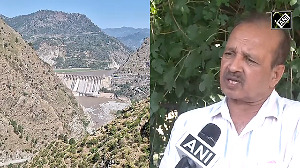A case of mistaken identity turned a stirring occasion into an international embarrassment for the Pakistan government when the tardy release of an Indian national Surjeet Singh was wrongly reported by Pakistani media as the release of Sarabjit Singh, an alleged Indian spy who is languishing in a Pakistani jail for over two decades now despite repeated calls for his release by the Indian government.
Surjeet Singh, currently held in Kot Lakhpat Jail in Lahore on spying charges, has been in captivity for over 30 years. He was captured by the Pakistani military authorities near the Wagah border close to Lahore on charges of spying during the era of military ruler General Mohammad Zia ul Haq.
Surjeet Singh was tried and sentenced to death by the commanding officer of the 106 Brigade Headquarter, Lahore, Cantt under the Pakistan Army Act, 1962, on October 31, 1985 and his mercy petition was rejected by the then army chief and President of Pakistan General Zia ul Haq.
Surjeet has already finished his jail term and the Lahore high court had already ordered his release.
Soon after taking over the government, then Prime Minister Benazir Bhutto declared on December 8, 1988, a general amnesty for all condemned prisoners in the country and advised the then President Ghulam Ishaq Khan to convert their death sentences to life imprisonment.
Earlier in the day on Tuesday, almost all leading Pakistani news channels had reported that President Asif Ali Zardari had converted Sarabjit Singh's death sentence to life imprisonment and directed the authorities to release him immediately if he had completed his prison term.
The news had travelled across the border to India as well, with Indian External Affairs Minister SM Krishna thanking and praising President Asif Zardari for the good will gesture.
It was believed that President Zardari's move to commute the sentence of Sarabjit had come after the release of a Pakistani national, Dr Khalil Chishti, who had been arrested in Rajasthan nearly 20 years ago for involvement in a murder.
But only when TV channels were showing Sarabjit's family in India rejoicing at the news of his release, a clarification by the Pakistani president's spokesman dampened their joy.
Farhatullah Babar, the presidential spokesman, clarified that the release orders were meant for Surjeet Singh who has been jailed for two decades and not for Sarabjit Singh.
"I think there is some confusion. First, it is not a case of pardon. More importantly, it is not Sarabjit. It is Surjeet Singh, son of Sucha Singh. His death sentence was commuted in 1989 by President Ghulam Ishaq Khan on the advice of Benazir Bhutto. Therefore, keeping him in jail any longer will be illegal confinement," Babar said.
To a question, Babar stated that Surjeet will be released following clearance from the interior ministry.
Under the procedure, he said, Pakistan's interior ministry will inform the foreign office to contact the Indian authorities through diplomatic channels for a date of release. It is expected that Surjeet can be repatriated in the next few days once the foreign ministries of India and Pakistan complete the documentation process.
I once again want to clarify that President Zardari has no role in commuting the sentence of Surjeet Singh as already reported by the Pakistani media, he added.
The presidential spokesman's clarification was apparently meant to calm down the ameer of the banned Jamaat ud Dawah, Hafiz Saeed who had bitterly criticised President Asif Zardari for the misreported release of Sarabjit.
Saeed was of the view that Sarabjit was a proven Indian spy just like Kashmir Singh, who had first pleaded innocence in Pakistan and later confessed being a RAW agent upon his release in 2008.
The JuD chief was of the view that Sarabjit's release could again leave Pakistan government completely embarrassed as had been the case after Kashmir Singh's release. Kashmir, who was an Indian spy and had spent 35 years of his life in Pakistani prisons, was released after being granted pardon by then President Pervez Musharraf in 2008.
However, as soon as he reached India, Kashmir addressed a press conference in Chandigarh and claimed that he was an Indian spy.
Kashmir's brazen public confession greatly embarrassed Musharraf and led many to believe that Pakistani sentiments had been shrewdly exploited. This prompted General Pervez Musharraf to reject the mercy petition of Sarabjit on March 5, 2012, believing a reprieve for a person convicted of terrorist attacks would only serve to further stir public sentiments.
But Sarabjit, who was convicted in 2006 for his involvement in 1990 serial bomb blasts in Lahore and Multan that killed 14 people, continues to plead innocence. Being kept in Kot Lakhpat jail, Lahore, he claims being a poor farmer and victim of mistaken identity who had strayed into Pakistan from his village located on the Amritsar border.
Sarabjit was awarded death sentence by a Pakistani court and the verdict was upheld by the Supreme Court. But his hanging has repeatedly been postponed by Pakistani President Zardari who is set to give his decision on a fresh clemency appeal made to him by Sarabjit.
It his fifth mercy petition, which has been signed by 100,000 Indians, Sarabjit has urged President Zardari to reciprocate the recent release of Dr Chishty by the Indian government. Attached with the petition are two letters addressed to the president from the chief cleric of Delhi's Jamia Masjid, Maulana Syed Ahmed Bukhari, and caretaker of the shrine of the Sufi saint Khwaja Moinuddin Chishti, Syed Muhammad Yamin Hashmi.
In his letter to the President, Maulana Syed Ahmed Bukhari pointed out that Sarabjit Singh's sister Dalbir Kaur had met him personally and provided vital evidence which proved the latter's innocence, being a case of mistaken identity.
"Sarabjit should be freed on humanitarian grounds, which will not only help in promoting goodwill between the two neighbours but will also result in promoting communal harmony among Sikhs, Hindus and Muslims of India," Maulana Bukhari wrote.







 © 2025
© 2025